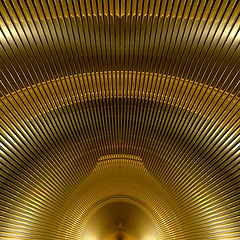

Certifications
_edited.jpg)







WQA GOLD SEAL
The Water Quality Association's Gold Seal Certification Program is dedicated to providing public health and safety services throughout the USA and globally, while maintaining expert service, superior reputation, and fair pricing. The Gold Sea Program offers certification of all products and chemicals that contain drinking water.
NSF / ANSI-42 DRINKING WATER TREATMENT UNITS, AESTHETIC EFFECTS
Certification means that a Pure Water Technology production model of drinking water treatment unit was tested at the Water Quality Association laboratory, or any of the testing laboratories recognized by the Water Quality Association, and that the unit was found to have met the standards for reduction of specific aesthetic-related contaminants in drinking water. In addition, the materials and components used in these certified drinking water treatment units have met the rigorous safety and structural integrity and strength requirements set by Industry Standard NSF/ANSI-42.
NSF / ANSI-53 DRINKING WATER TREATMENT UNITS, HEALTH EFFECTS
Certification means that a Pure Water Technology production model of drinking water treatment unit was tested at the Water Quality Association laboratory, or any of the testing laboratories recognized by the Water Quality Association, and that the unit was found to have met the standards for reduction of specific health-related contaminants in drinking water. In addition, the materials and components used in these certified drinking water treatment units have met the rigorous safety and structural integrity and strength requirements set by Industry Standard NSF/ANSI-53.
NSF / ANSI-58 REVERSE OSMOSIS DRINKING WATER TREATMENT SYSTEMS
Certification means that a Pure Water Technology production model of drinking water treatment unit was tested at the Water Quality Association laboratory, or any of the testing laboratories recognized by the Water Quality Association, and that the unit was found to have met the standards for reduction of total dissolved solids (TDS) and other contamiants in drinking water. In addition, the materials and components used in these certified drinking water treatment units have met the rigorous safety and structural integrity and strength requirements set by Industry Standard NSF/ANSI-58.
NSF / ANSI-372 RESTRICTION ON THE USE OF LEAD-CONTAINING MATERIALS
Certification means that a Pure Water Technology production model of drinking water treatment unit was tested at the Water Quality Association laboratory, or any of the testing laboratories recognized by the Water Quality Association, and that the unit was found to have met the standards for lead-free components in the dispensing of drinking water. In addition, the product complies with NSF/ANSI 372 and conforms with lead content requirements for “lead-free” plumbing as defined by California, Vermont, Maryland, and Louisiana state laws and the U.S. Safe Drinking Water Act in effect as of January 4, 2014.
ISO 9001
Specifies requirements for a quality management system where an organization:
-
Needs to demonstrate its ability to consistently provide product that meets customer and applicable regulatory requirements, and
-
aims to enhance customer satisfaction through the effective application of the system, including processes for continual improvement of the system and the assurance of conformity to customer and applicable regulatory requirements.
ISO 14001
ISO 14001 is applicable to any organization that wishes to establish, implement maintain and improve an environmental management syste, to assure itself of conformity with its stated environmental policy.
Certification specifies requirements for an environmental management system to enable an organization to develop and implement a policy and objectives which take into account legal requirements and other requirements to which the organization subscribes, and information about significant environmental aspects.
UL - UNDERWRITERS LABORATORIES INC.
UL has developed more than 800 Standards for Safety. Pure Water Technology Products are registered and tested by UL to ensure they meet the UL's rigorous stafety standards. This ensures that consumers can trust a tested product, and ensure consumers live and work in a safe environment.

_edited.jpg)



